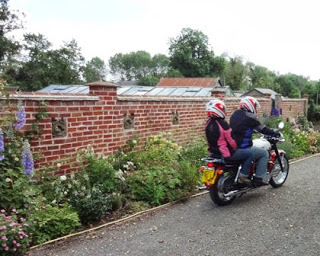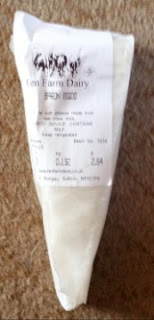A few of you had not met, so I promised to put up links to all the bloggers who came. So here’s the guest list, starting with those who’d travelled furthest –
Mig and Barney
PixieMum and Ian
Blue Witch (or, if that link doesn’t work, try this one) and Mr BW
Mike and Ann
Sir Bruin and Liz, the Small Bear
Janerowena
Rog and Mrs Rine, with Lily and Holly
Roses and Lawrence
as well as most of the family, ie
our daughter, Weeza, her husband Phil and their children, Zerlina, nearly 5 and Augustus, nearly 2
our elder son Al, his wife Dilly and their children, Squiffany, 8, Pugsley, 6 3/4 and Hadrian, 2.
We acquired two more guests, in fact, another Mike and Ann, who happened to call in and were promptly given drinks and invited to stay for lunch. Luckily, the children didn’t mind sharing seats and cutlery and I didn’t have to scout around for more.
However, this is an old house and the walls are pretty elastic, so those of you who could not make it this year will be most welcome next time.
Di, Zig, Mig and Barney stayed for a couple of nights and therefore did a great deal of the work and many thanks to them, especially at the last when they remembered when to take things out of the oven on time, and afterwards when sterling duty was done at the kitchen sink. The dishwasher was put into service six times yesterday, but there was still a lot of hand washing-up.
There were many highlights of the day and watching (and listening to) you all getting on so well was the most rewarding part. I must especially mention Indigo, who only visited my blog for the first time a couple of weeks ago (I’d been lurking a bit longer on his) but came a long way to meet us, and Jane, who isn’t even a blogger but was willing to make friends with lots of them! Di came all the way from Australia, via Wiltshire where she’s staying with Zig. All the others were here last year (except Holly, a feisty little lass who explained to Ben that she may be smaller than him but she’s in charge).
The personal highlight for me – and, I suspect Weeza, who watched gleefully, was my first ever ride on a motorbike. I was highly gratified to be able to squeeze into Liz’s jacket and relieved that I was able to swing my leg very high indeed (I’m only little) to climb on board. It was great. Sir B was very gentle with me and slowed right down for the bends, and I took great care to lean as far as he did and no further. Here is the proof –
Not that you can exactly see it’s me, but I assure you it is. And you can see that the wall is still standing and that the flower bed is doing nicely.
There are more photos to surface in the next few days, I’m sure, not that I took any but I spotted several cameras. Here’s an example, of me opening a bottle that had defeated both Russell and Zig –
Yup. As I explained, I’ve never met a bottle I couldn’t open. What is quite odd is that the kitchen is way on the huh but I’m pretty well upright. No, I can’t explain that at all.
The most memorable event for those who stayed on was the sight of Blue Witch having to remove her trousers, which were soaked in wee. Not that she took them off in front of us, of course. It would have been good if, being already wet, she’d kept the tortoise on her lap and not let it widdle on my carpet, but she did bear the brunt of it. Those who witnessed the event (I was just out of the room and just heard the cry of “Don’t drop the tortoise!” [she didn’t]) said that they had no idea a tortoise of that size contained that much liquid, estimated at half a mugful.
Ben isn’t particularly well behaved, admittedly, though I thought he acquitted himself pretty well under the exciting circumstances, but it’ll be the last time a tortoise is invited to my house. Unless it’s a blogging tortoise, of course.
*After my faux pas yesterday, I felt I had to count the vegetarians, but of course they didn’t eat the ham. So it was 29.





